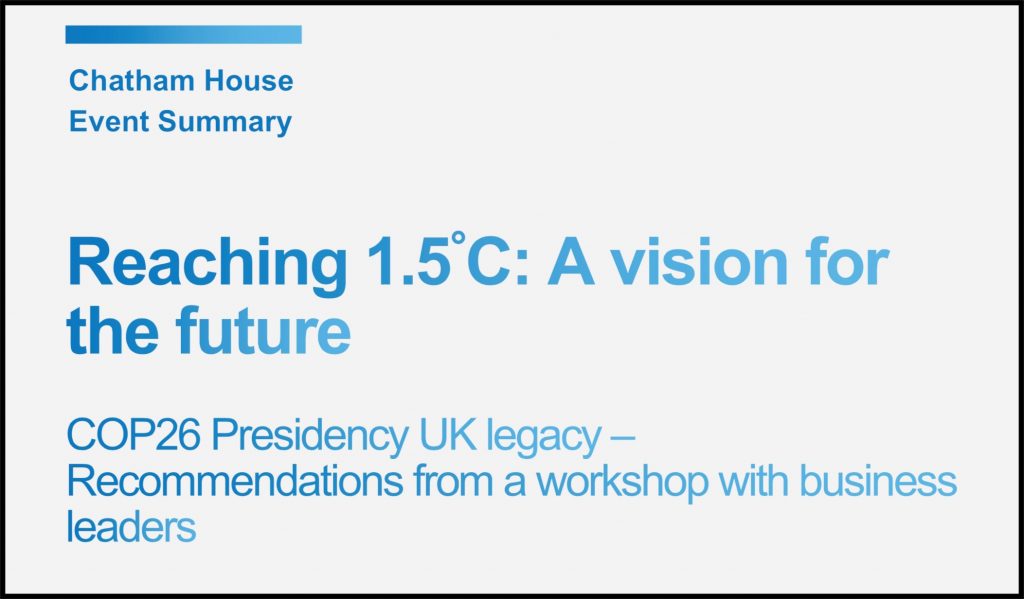I worked with Chatham House’s Sustainability Accelerator back in September to design and run a workshop of business leaders about ways to accelerate the post-carbon transition. The report from the event was published just as COP27 started.

The event was sponsored by Britain’s COP Presidency, and Alok Sharma opened it.
We were working at speed, so asked them three questions:
How will business be operating differently by 2050?
What do you need to do mitigate weaknesses in your current operating models?
What innovations now can accelerate the response and bring the desired future closer?
The whole thing was hung lightly on a Three Horizons framework, to give the facilitation team some structure.
Collaboration
By 2050, the businesses expected to see different business models, sustainability as a core part of organizational culture, and new forms of decision-making, notably around finance.
One of the themes of the workshop was about cross-sector collaboration, since a lot of the gains that are needed to stay within 1.5 degrees of warming require systemic change. Reviewing the material afterwards, we identified five types of collaboration that could make a difference:
- Product-based collaboration: Both along and across supply chains, to make the shift from a linear economy to a circular economy. One example: batteries moving from aircraft to bus fleets over their lifetime.
- Standards-based collaboration: Using standards to make sure that we know what materials and emissions are in supply chains. And beyond, to better assess Scope 2 and Scope 3 emissions.
- Competitor-based collaboration: Finding ways for market competitors to work together to meet shared environmental goals, without creating unfair competition. In the UK this requires some legal care, but can be done.
- Skills-based collaboration: Pooling expertise between organizations can shorten the learning and implementation cycle for new approaches.
- Place-based collaboration: Increasing collaboration at a city or regional level between businesses, communities, and local authorities. In one UK city, one large business had convened suppliers and partners around a shared objective of becoming the first net zero region.
There are some systems challenges in all of this. Data and platforms need to be connected; finance needs to be re-aligned; and policy and standards need to be rewritten so that they promote change. One of the issues identified in the workshop discussion was that legal and financial frameworks are often locked into existing ways of doing things, so impeding transition.
